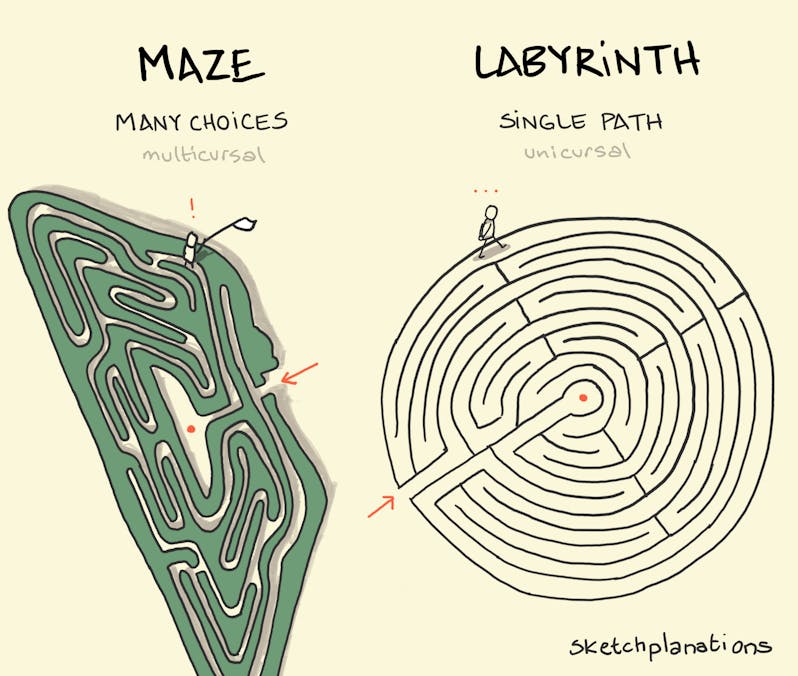
There's a crucial, and wonderful, distinction between mazes and labyrinths.
A maze is a multi-branching, complex structure with twists, turns, choices, dead-ends and treasure or Triwizard cups in the centre. It's confusing, daunting, exciting, fun, challenging, maybe deadly. A maze heightens awareness, concentration, and your heart rate.
A labyrinth has a single path. One long, twisting, but unwavering path towards the central destination and back out. It's simple, calming, straightforward, reassuring and satisfying. Every step is progress. There are no tough choices to make. No paths, maps or mental models to balance in your head. Nothing to intrude on your thinking, just your next step. A labyrinth gives space for your thoughts, and is calming and peaceful.
If you want adventure and action, find a maze. If you'd like calm and contemplation, find a labyrinth.
No wonder then that walking a labyrinth has been found to reduce stress, increase calm and aid recovery in hospitals and centres for therapy and mental health care. Try tracing your finger over the paths of each to feel the difference. Also see: solvitur ambulando.
—
The two are based on the hedge maze at Henry VIII's Hampton Court Palace near where we live, and the wonderful Land's End Labyrinth (video) near where we used to live.
The original labyrinth of Crete, of Theseus and the Minotaur fame, was complex and confusing and no doubt not like the labyrinths that have now evolved from it.
—














